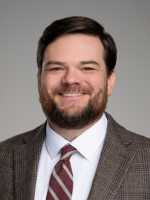Two San Diego Navy officers could be forced out of the service over the Feb. 2022 death of Seaman Kyle Mullen, a SEAL trainee who died hours after completing "Hell Week" at Basic Underwater Demolition/SEAL (BUD/S) school in Coronado.
A series of Navy investigations found Mullen was suffering from respiratory issues in the weeks leading up to his death. He died of acute pneumonia and an enlarged heart, according to a Navy autopsy.
An investigation released last year said training at BUD/S lacked adequate oversight, had insufficient risk assessment, poor medical treatment and there was undetected use of performance enhancing drugs — such as steroids.
It singled out several officials for punishment — including the commander of Naval Special Warfare Training Command, Capt. Brad Geary, and the former senior medical officer, Cmdr. Erik Ramey, a Navy physician.
Both officers were informed last week they would face boards of inquiry — administrative legal hearings in which a panel of senior officers will decide whether each officer is guilty of dereliction of duty and, if so, whether they should be allowed to stay in the Navy.
News of the boards was first reported by journalist Seth Hettena on Substack.
Geary blasted the Navy's investigation in a wide-ranging six-hour interview on the Shawn Ryan podcast Monday. He said the service hasn't told the whole truth about what happened to Mullen.
"I'm risking a lot," Geary told Ryan when asked about speaking out. "It’s important and it’s been suppressed and that’s been an injustice — not just for the Mullen family (but) for my cadre who were vilified, for medical professionals who were vilified and for me personally and my family."
Geary said Navy investigators ignored evidence that performance enhancing drugs (PEDs) — not his leadership — contributed to Mullen's death.
According to Geary, investigators found a large quantity of PEDs in Mullen's vehicle — more than what one person might use.
"It was enough for me to think it was more than him," Geary said.
He said he'd been hearing rumors of rampant performance enhancing drug (PED) use among BUD/S students in the weeks leading up to Mullen's death.
The Navy's investigation noted that its medical examiner didn't test for PEDs during Mullen's autopsy.
Geary said that due to COVID-19, he and his medical staff were diligently monitoring trainees. BUD/S trainees exercise for long hours in the cold Coronado waters and often develop respiratory infections, which could be especially dangerous combined with COVID-19.
"So this notion that we were just turning a blind eye to medical risk and failed to provide proper medical oversight is actually contrary to all the evidence of everything we were doing on a day-by-day basis to manage risk to these candidates," Geary said.
A Navy spokesperson confirmed the officers were notified of the boards but declined to comment further or respond to Geary's comments on the podcast.
"As a result of the investigation into the oversight and management of BUD/S Class 352 and the surrounding circumstances of the death of Seaman Mullen, the Navy is proceeding with accountability actions," said Cmdr. Tim Hawkins. "Given these actions are administrative and ongoing, it would be inappropriate to comment further."
The service said last year it'd implemented several changes at BUD/S for better oversight and medical screening.








